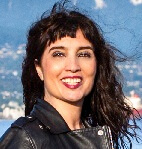Watching Dark Sisters, the opera by American composer Nico Muhly inspired by breakaway polygamous Mormon cult leader Warren Jeffs, was eerily resonant.
In the wake of yet another American massacre, as a nation pondered its legacy of gun violence and NY Times op-eds lamented the ongoing hysteria about refugees while an average of 92 gun deaths a day occur in America, the opera was a poignant reminder that extremism has no geographical boundaries.
Indeed the first scene of the Vancouver Opera production recalled Iraq – and not just because of the set – designed to evoke the Arizona/Utah desert where Jeffs and his many wives and children had their compounds. The libretto about the FBI’s “invasion” of “our sacred spaces” made me wonder how the opera would play to Middle Eastern audiences.
The tale of “sister wives” who remain tethered to a sociopathic patriarch/ “prophet” – who speaks of “God’s will” and “end times” – would likely find resonance in a region terrorized by Daesh (ISIS) and one where various wars and invasions have created whole nations of widows and orphans.
[T]he opera underlined the fact that homegrown terror is … more of a threat to North Americans than “foreign” terror.
But, ultimately, the opera underlined the fact that homegrown terror is not only more of a threat to North Americans than “foreign” terror (albeit often funded via the West and their allies), it’s also an established tradition.
Consider the mantra of the National Rifle Association (NRA) – who evoke the second amendment about the “right to bear arms” – as if it were a sacred text in the constitution. In fact, it speaks to a time when citizen militias played a role in the American Revolution, and is about as relevant to current American reality as say, social customs in 8th century Arabia are to most Muslims.
Old Testament understanding
The opera, which evokes the plight of the women and children caught in the weird world of Jeff’s polygamist rape culture reign of terror, highlights the way “Old Testament” values can be warped to serve the needs of creepy, power-mongering misogynists.
It’s worth noting that, had things gone differently, another large-scale American massacre could have taken place at one of Jeff’s “compounds”, where weapons, along with under-aged “brides,” were stockpiled.
Another major centre for the breakaway Fundamentalist Church of Jesus Christ of Latter-Day Saints is here in Canada, in B.C.’s “Bountiful” – a small town where girls as young as 15 are married to men three times their age.
While North America is caught up in Islamophobic hysteria, in the wake of the horrific mass shooting in San Bernadino, the statistics speak for themselves.
Homegrown movements
An FBI report that documented terrorist incidents in the U.S. from 1980 to 1995, shows that attacks by Jewish extremists were higher than attacks by Muslim extremists, and other data points to a high level of government “entrapment” policies in recruiting and encouraging would be “terrorists.”
Meanwhile groups like the Anti-Defamation League (ADL) continue to document the activities of widespread homegrown fascist movements like the American Front.
Of course until 9/11, the single worst terrorist attack on U.S. soil was committed by anti-government militant Timothy McVeigh, a Gulf War veteran and right-wing conspiracy theorist, in Oklahoma.
But ultimately, U.S. history is steeped in religious extremism: from the Puritan settlers who used their religious ideology to exterminate native Americans en masse (well documented in Tariq Ali’s Clash of Fundamentalisms), through to the 26 per cent of Americans who identify themselves as Christian evangelicals. (Their Canadian counterparts were well documented in Marci Macdonald’s Armageddon Factor)
Exporting gun culture
It stands to reason that a nation born in flames and fuelled by violent religious extremism would go on to become the biggest arms exporter in the world, with a serious domestic violence problem.
Unfortunately, the violence is not confined to America. While they seem to have imported their special brand of gun violence/militia rule to countries they’ve invaded – like Iraq for instance, where they’re also having a few issues at the moment, and where potential terrorists also have easy access to automatic weapons.
When I first visited Iraq in 1997, it was safe to walk down the street without being robbed or kidnapped at gunpoint, not to mention blown up by an improvized explosive device (IED) or sold into sex slavery.
And so, as the first act of Nico Muhly’s opera began with a poignant chorale of the “sister-wives”, I thought of Iraq. And when the climactic recreation of their appearance on Larry King Live to protest the abduction of their children took place in the second act, I pondered Iraqi mothers longing for their own offspring.
When I first visited Iraq in 1997, it was safe to walk down the street without being robbed or kidnapped at gunpoint …
And when the heroine Eliza runs away and encourages her daughter to do the same, I thought of the way violent extremisms reinforce each other. And of the way individual acts of resistance, like Eliza’s revelation on national television of underage marriage and abuse, can still make a difference.
Iraqi women, like Eliza’s “sister-wives,” know the pain of having their children abducted by “authorities” and worrying about their whereabouts. But unlike their Mormon counterparts, their concerns rarely receive airtime on national American television.
Also unlike their Mormon counterparts, they remember a time when their status was the highest in the region – when half the civil service and half the doctors were women and reproductive and divorce rights were enshrined in a secular constitution.
I think that the opera would play well in Baghdad or perhaps even Damascus. There would certainly be a lot of widows and orphans cheering on Eliza in the final act. Meanwhile, I’m thinking of writing my own libretto, set in the Iraqi desert, and featuring the voices of forgotten sisters.





